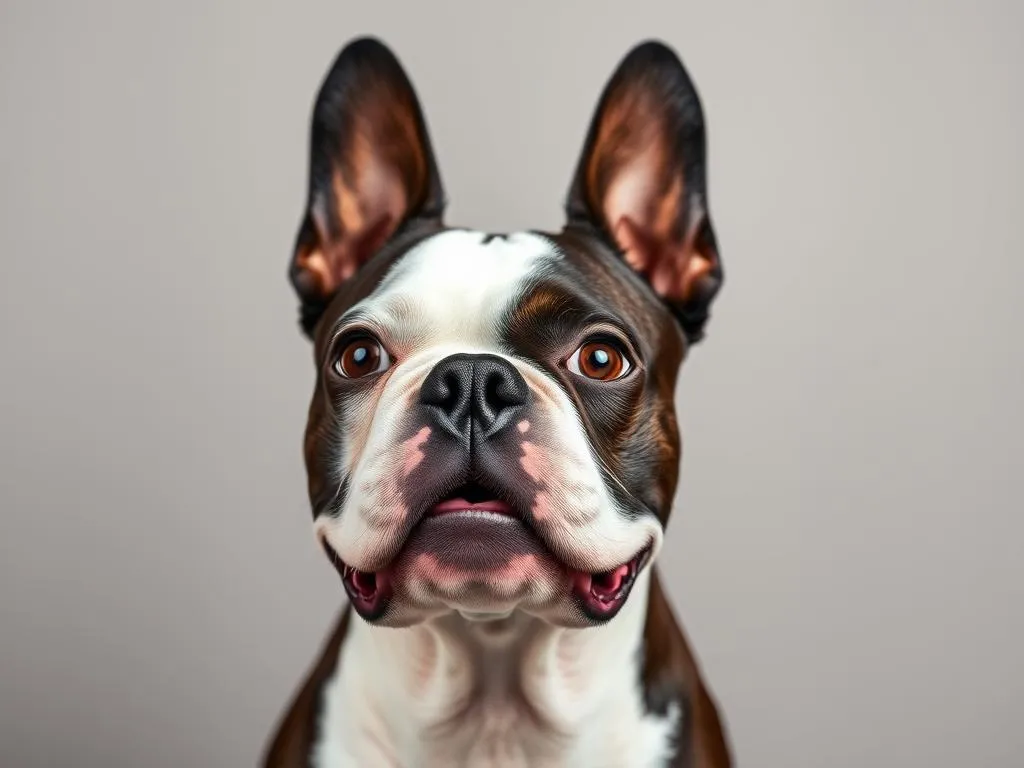
Introduction
When it comes to choosing a dog breed, understanding the characteristics, history, and care requirements of different breeds is paramount. This knowledge can significantly influence a prospective owner’s decision, ensuring they select a companion that fits their lifestyle and family dynamics. Among various breeds, the Boston Terrier stands out as a delightful option for many dog lovers. This small yet spirited breed is often referred to as the “American Gentleman” due to its distinctive tuxedo-like coat and charming demeanor.
In this article, we will delve into the fascinating traits, history, care, and overall suitability of the Boston Terrier as a family pet. Whether you are considering adopting a Boston Terrier or simply wish to learn more about this breed, this guide will provide you with valuable insights.
History of the Boston Terrier
Origins
The Boston Terrier has a rich history that traces back to the United States in the late 19th century. The breed emerged in Boston, Massachusetts, as a result of crossbreeding between the now-extinct English Bulldog and the English Terrier. Originally bred for bull-baiting and ratting, the Boston Terrier quickly transitioned to a more companion-oriented role, becoming a beloved pet among families.
As urban life began to flourish, the compact size and amiable temperament of the Boston Terrier made it an ideal city dog. By the 1880s, these dogs were gaining popularity as companions, and their charming personalities won the hearts of many.
Breed Recognition
The journey toward formal recognition began in 1893 when the Boston Terrier was officially recognized by the American Kennel Club (AKC). This marked a significant milestone in the breed’s history, solidifying its status as a distinct breed. The Boston Terrier has since been classified as a companion breed, celebrated for its affectionate nature and suitability for family life.
Physical Characteristics
Size and Weight
The Boston Terrier is compact and muscular, making it an excellent choice for those with limited space. Typically, adult Boston Terriers weigh between 10 to 25 pounds, with an average height ranging from 15 to 17 inches at the shoulder. This small size contributes to their adaptability, allowing them to thrive in various living environments.
Coat and Color
The coat of the Boston Terrier is short, smooth, and easy to maintain, which is a bonus for busy pet owners. Common color patterns include brindle, black, and seal, often with distinctive white markings. These markings can appear on the face, chest, and paws, contributing to the breed’s signature tuxedo appearance.
Distinctive Features
One of the most recognizable features of the Boston Terrier is its brachycephalic face, characterized by a short muzzle and large, expressive eyes. This unique facial structure gives the breed its charming expression and playful demeanor. Additionally, their perky, upright ears add to their overall cuteness, making them a favorite among dog enthusiasts.
Temperament and Behavior
General Temperament
The Boston Terrier is known for its friendly, intelligent, and lively personality. These dogs are affectionate and tend to form strong bonds with their families. They are often described as “people-oriented,” thriving on human interaction and companionship. The breed’s playful nature makes them excellent companions for both adults and children.
Compared to other breeds, Boston Terriers are generally well-mannered and adaptable, making them suitable for various living situations. Their sociable demeanor allows them to get along well with other pets, provided they are properly socialized from a young age.
Socialization
Socialization is crucial for Boston Terrier puppies to develop into well-rounded adult dogs. Early exposure to different environments, people, and other animals can help mitigate potential behavioral issues down the line. Positive experiences during the critical socialization window (between 3 and 14 weeks of age) will lay the foundation for a confident and friendly adult dog.
Best practices for socializing a Boston Terrier include attending puppy classes, arranging playdates with other dogs, and exposing them to various sights, sounds, and experiences. This proactive approach helps foster a well-adjusted pet that is comfortable in diverse situations.
Interaction with Families and Children
Boston Terriers are renowned for their affectionate nature, making them great companions for families, especially those with children. Their playful demeanor and gentle disposition allow them to interact positively with kids. However, supervision is essential, particularly with very young children, to ensure that interactions remain safe and enjoyable for everyone involved.
Additionally, Boston Terriers tend to be good with other pets, especially if introduced to them early. Their sociable nature generally leads to harmonious relationships within multi-pet households.
Health and Care
Common Health Issues
While Boston Terriers are generally healthy dogs, they can be prone to specific health issues due to their brachycephalic structure. Common health concerns include:
- Brachycephalic Airway Syndrome: This condition can lead to breathing difficulties due to their short muzzles.
- Eye Problems: Their prominent eyes make them susceptible to injuries and conditions like cataracts.
- Hip Dysplasia: A hereditary condition affecting the hip joint, which can lead to arthritis and mobility issues.
Regular veterinary check-ups, dental care, and awareness of breed-specific health concerns can help mitigate these risks and ensure a long, healthy life for your Boston Terrier.
Nutrition
Feeding your Boston Terrier a balanced diet is crucial for maintaining their health and energy levels. Due to their small size and high metabolism, it’s essential to provide them with high-quality dog food formulated for small breeds.
A typical feeding routine may include:
- Dry kibble: A high-protein, grain-free option can be beneficial.
- Wet food: This can be mixed with dry food for added moisture and flavor.
- Raw diet: Some owners opt for a raw food diet, which requires careful planning to ensure nutritional balance.
Always consult with your veterinarian regarding the best diet for your specific dog, especially if they have any health concerns.
Grooming Needs
The grooming routine for a Boston Terrier is relatively simple due to their short coat. Here are some essential grooming tasks to maintain their hygiene and appearance:
- Bathing: Bathe your Boston Terrier as needed, usually every 4 to 6 weeks, to keep their coat clean and odor-free.
- Brushing: A weekly brushing can help remove loose hair and dirt.
- Nail trimming: Regular nail trimming is essential to prevent overgrowth and discomfort.
Additionally, regular ear cleaning and dental care are vital for overall health. Keeping an eye on their eyes for any signs of irritation or infection is also crucial due to their prominent positioning.
Training and Exercise
Training Techniques
Training a Boston Terrier can be a rewarding experience, as they are intelligent and eager to please. Effective training techniques include:
- Positive reinforcement: Using treats, praise, and play as rewards for desired behaviors can enhance the training experience.
- Consistency: Establishing a routine and being consistent with commands and rules helps reinforce learning.
- Socialization: Early and ongoing socialization can prevent behavioral issues and promote good manners.
Training sessions should be kept short and engaging, as Boston Terriers can lose focus if sessions drag on too long.
Exercise Requirements
While Boston Terriers are not known for being overly energetic, they still require daily exercise to maintain their physical and mental health. Here are some recommendations for keeping your Boston Terrier active:
- Daily walks: A couple of short walks each day will help satisfy their exercise needs.
- Playtime: Engage in interactive play, such as fetch or tug-of-war, to stimulate their minds and bodies.
- Mental stimulation: Puzzle toys and training exercises can keep their brains active and prevent boredom.
Overall, a moderate amount of exercise, combined with mental stimulation, will help keep your Boston Terrier happy and healthy.
Living Conditions
Ideal Home Environment
The Boston Terrier is well-suited for various living environments, including apartments and homes with yards. Their small size makes them adaptable to smaller living spaces, but they still require room to play and explore.
A secure, fenced yard can provide a perfect environment for outdoor play, but they can also do well with regular walks in the neighborhood. Regardless of the living situation, ensuring they have a safe, comfortable space to rest and relax is essential.
Compatibility with Owners
Boston Terriers are versatile companions, appealing to a broad range of owners. They thrive in various lifestyles, from active families to seniors looking for a gentle companion. Here are some ideal owner profiles:
- Active families: Families with children will appreciate the Boston Terrier‘s playful and affectionate nature.
- Busy professionals: Their adaptability makes them suitable for owners who may not have a lot of time for exercise, as they can be content with short bursts of activity.
- Seniors: Their manageable size and low exercise requirements make them an excellent choice for older adults seeking a loyal companion.
Ultimately, the Boston Terrier can complement many lifestyles, provided their social, exercise, and care needs are met.
Adoption and Purchase
Finding a Boston Terrier
If you’re considering bringing a Boston Terrier into your family, you have several options for adoption or purchase.
- Shelters and rescues: Many Boston Terriers are in need of loving homes. Local shelters and breed-specific rescue organizations are excellent places to start your search.
- Reputable breeders: If you prefer to purchase a puppy, seek out reputable breeders who prioritize health testing and responsible breeding practices. Ensure they provide a clean environment for their dogs and are willing to answer your questions.
Cost of Ownership
Owning a Boston Terrier comes with various costs. Here’s a breakdown of initial and ongoing expenses:
- Purchase price: If adopting, fees can range from $100 to $300, while puppies from breeders may cost $1,000 to $3,000.
- Veterinary care: Routine check-ups, vaccinations, and preventive care can average $300 to $600 annually.
- Food: Depending on the quality and type of diet, expect to spend $30 to $100 monthly.
- Grooming and supplies: Basic grooming supplies, toys, and other necessities may add another $20 to $50 monthly.
Understanding these costs will help prospective owners prepare for the financial commitment involved in caring for a Boston Terrier.
Conclusion
In summary, the Boston Terrier is a charming and adaptable breed that makes an excellent companion for many families. Their friendly temperament, manageable size, and low grooming needs make them suitable for various living situations. However, prospective owners should carefully consider their lifestyle and the specific requirements of the breed before making a commitment.
Whether you’re drawn to the Boston Terrier for its delightful personality, unique appearance, or suitability as a family pet, this breed undoubtedly offers a rewarding companionship for those who choose to welcome one into their home. With proper care, training, and love, a Boston Terrier can become a cherished member of your family for years to come.









